Registration Venue Accommodation Transportation Schedule Panels Poster Session Organizers

Marc Hoit
Marc Hoit is the Vice Chancellor for Information Technology at NC State University. Dr. Hoit has led the development of a campus-wide IT Strategic Plan, an IT Governance Structure, and Strategic Operating Plan and launched a number of key foundational projects that have improved the efficiency and effectiveness of IT on campus. He is an EDUCAUSE Board member as well as the Chair of the SURA IT Committee. He previously held numerous administrative positions at the University of Florida, including Interim CIO, Director of Student PeopleSoft Implementation, the Associate Dean for Academic Affairs Administration, and the Associate Dean for Research in the College of Engineering. Dr. Hoit is also a Professor in the Civil, Construction and Environmental Engineering Department.

Mari Silbey
Mari Silbey is a telecom and wireless specialist at nonprofit US Ignite, where she leads the $100 million Platforms for Advanced Wireless Research (PAWR) program and acts as Executive Director of Programs for the National Spectrum Consortium (NSC). In her role with PAWR, Mari is responsible for strategy and oversight across multiple wireless testbeds, as well as coordinating with government agencies and engaging with academic and industry research communities. At NSC, she heads up initiatives to accelerate research and prototyping of spectrum-related technologies. Prior to her work at US Ignite, Mari was a broadband and telecom journalist for many years, covering everything from video network infrastructure to smart cities and telecom regulation. Before that, she worked as an independent analyst and writer for several companies, including Motorola and the content delivery network company Limelight Networks.
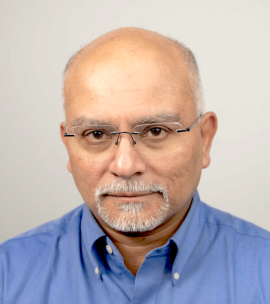
Rudra Dutta
Rudra Dutta is a faculty member in the Department of Computer Science in the College of Engineering, and the Masters in Computer Networking Program; at North Carolina State University, Raleigh, North Carolina. He has been employed from 2001 – 2007 as an Assistant Professor, from 2007 – 2013 as an Associate Professor, and since 2013 as a Professor. As of Fall 2018, he is serving as Associate Department Head. His current research interests focus on design and performance optimization of large networking systems, Internet architecture, wireless networks, and network analytics. He is a senior member of IEEE and a distinguished member (distinguished engineer) of ACM.

Ismail Guvenc
Ismail Guvenc is a Professor at the Department of Electrical and Computer Engineering at NC State University. His recent research interests include 5G/6G wireless networks, UAV communications, millimeter/terahertz communications, and heterogeneous networks. He has published more than 300 conference/journal papers and book chapters, several standardization contributions, four books, and over 30 U.S. patents. Dr. Guvenc is the PI and the director for the NSF AERPAW project and a site director for the NSF BWAC I/UCRC center. He is an IEEE Fellow, a senior member of the National Academy of Inventors, and a recipient of several awards, including NC State University Alcoa Distinguished Engineering Research Award (2023), Faculty Scholar Award (2021), R. Ray Bennett Faculty Fellow Award (2019), FIU COE Faculty Research Award (2016), NSF CAREER Award (2015), Ralph E. Powe Junior Faculty Award (2014), and USF Outstanding Dissertation Award (2006).

Mihail Sichitiu
Mihail Sichitiu was born in Bucharest, Romania. He received a B.E. and an M.S. in Electrical Engineering from the Polytechnic University of Bucharest in 1995 and 1996, respectively. In May 2001, he received a Ph.D. degree in Electrical Engineering from the University of Notre Dame. He is currently employed as a professor in the Department of Electrical and Computer Engineering at North Carolina State University. His primary research interest is in Wireless Networking with an emphasis on multi-hop networking and wireless local area networks.
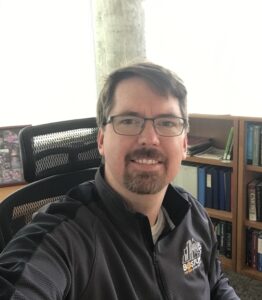
Brian Floyd
Brian Floyd is the Alton and Mildred Lancaster Professor in Electrical and Computer Engineering and a University Faculty Scholar at NC State University. He leads a research program in the areas of radio-frequency (RF) and millimeter-wave (mmWave) circuits and systems, organized as the iNtegrated Circuits and Systems lab at NC State (iNcs2 [rhymes with “NCSU”]). He also teaches analog, RF, and mmWave integrated circuit classes. See more info on his bio here. His research focuses on circuits and systems for wireless communications, imaging, and radar applications. Specific research topics include phased-array transceivers, software-defined radios, N-path filters, 6G communications and sensing, digital beamforming, built-in self-test and calibration, mmWave imagers, MIMO radar, AI approaches to RF design, 3D heterogeneous integration, and wireless technology for UAVs.
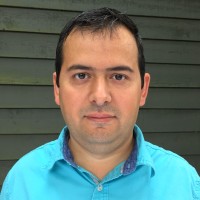
Ozgur Ozdemir
Ozgur Ozdemir received the BS degree in Electrical and Electronics Engineering from Bogazici University, Istanbul, Turkey, in 1999 and the MS and Ph.D. degrees in Electrical Engineering from The University of Texas at Dallas, Richardson, TX, USA, in 2002 and 2007, respectively. From 2007 to 2016, he was an Assistant Professor at Fatih University, Turkey, and worked as a Postdoctoral Scholar at Qatar University for 3.5 years. He joined the Department of Electrical and Computer Engineering at NC State as a visiting research scholar in 2017 and is now serving as an Associate Research Professor. His research interests include software-defined radios, channel sounding for mmWave systems, wireless testbeds, digital compensation of radio-frequency impairments, and opportunistic approaches in wireless systems. He is serving as the lead for supporting field experimentation with wireless technologies and drones for the NSF AERPAW platform at NC State.
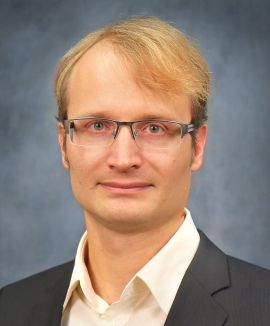
Vuk Marojevic
Vuk Marojevic is an associate professor in Electrical and Computer Engineering at Mississippi State University, Starkville, MS, USA. He graduated from the University of Hannover, Germany, and Barcelona Tech (UPC), Spain, with an MS and a Ph.D in electrical engineering. He is a principal investigator of the US National Science Foundation projects AERPAW and Open Artificial Intelligence Cellular (OAIC). His research interests include mobile communications, software radio, spectrum sharing, wireless testbeds and testing, and wireless security with application to mission-critical communications, open radio access network (O-RAN), and unmanned aircraft systems. He is an associate editor of the IEEE Transactions on Vehicular Technology and the IEEE Vehicular Technology Magazine.
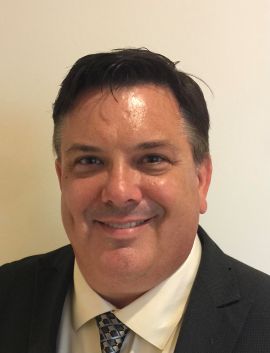
Thomas Zajkowski
Thomas Zajkowski is the NC AirTAP Program Coordinator at the Institute for Training Research and Education (ITRE). The North Carolina Airport Technical Assistance Program (NC AirTAP) is a joint effort of ITRE, the NCDOT Division of Aviation, and the NC Airports Association to support the state’s public- and private-sector airport professionals. Through educational offerings, information resources, and related assistance, NC AirTAP helps NC airports improve the safety, quality, and efficiency of their operations and increase the use of new aviation materials and technology. The program also helps airport staff build a community network for exchanging best practices. He is also a Co-PI for the Aerial Experimenting and Research Platform for Advanced Wireless (AERPAW). Tom is responsible for UAS flight operations to support AERPAW experiments. Previously, he was a federal contractor employed at the United States Forest Service Remote Sensing Applications Center (RSAC), Salt Lake City, Utah, as a Remote Sensing Specialist and pilot. He supported numerous remote sensing resource management and wildfire data collection projects from 1999 to 2013, working with cooperators from NASA, NOAA, the Department of the Interior, the Department of Defense, state emergency management agencies, and universities. Thomas holds an FAA Commercial pilot’s certificate and a Part 107 Remote pilot certificate.

Chris Roberts
Chris Roberts graduated from Cornell University in 2010 with a Bachelor of Science degree in Plant Science. He taught high school agriculture in Hayesville, NC, from 2016 to 2019. After moving to Durham, NC, he taught middle school math and science from 2019 to 2022. He attended Momentum Learning and graduated with a certificate in Software Engineering. In 2022, he started working for Taylor Advisory, LLC, where he designed and developed a full-stack web application to help the company facilitate its unique approach to analyzing acquisitions and mergers. Toward the end of 2024, he began working for the AERPAW team at NC State. At AERPAW, Chris designs and writes updates for the AERPAW web portal and is a contributing member to the design and updates for the control framework.

Asokan Ram
Asokan Ram has 25 patents and was recognized with Sony Ericsson’s Distinguished Inventor Award, Ixia Engineering Master Award, and Ixia Technical Excellence Award. As an architect at Ixia Communications, he led wireless test system design and development and mentored the engineering team. This leadership included the development, from definition to commercialization, of the 4G LTE Multi UE sector simulator and its evolution for LTE-A to 5G-NR technologies. At Ericsson, he led the Technology Working Group for radio access and 3GPP standardization and served in product development and engineering roles. He was a key player in architecting the ACeS GMR-2 geo-mobile satellite system based on GSM/EDGE and led the standardization of GMR-2 air interface in ETSI. He worked on the development of multiple mobile platforms, terminals, and advanced receiver algorithms for 2G GSM/EDGE and 3G WCDMA/HSPA technologies.
